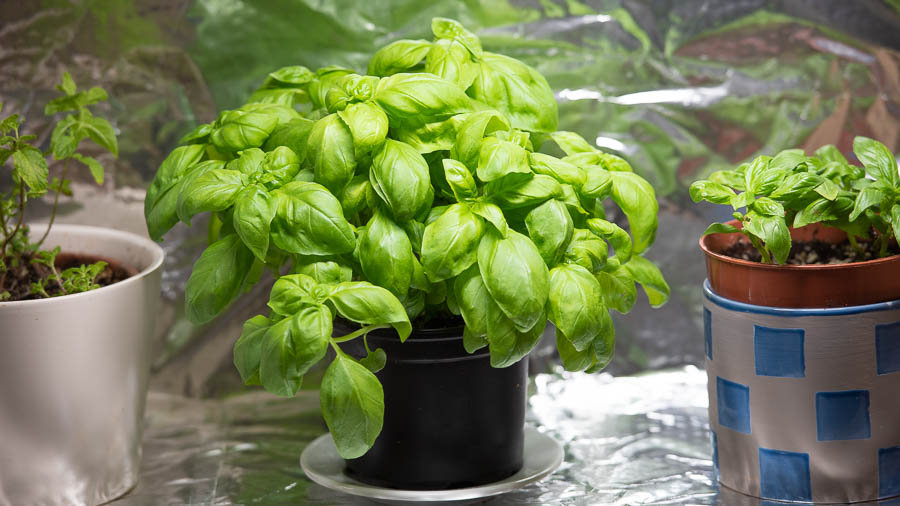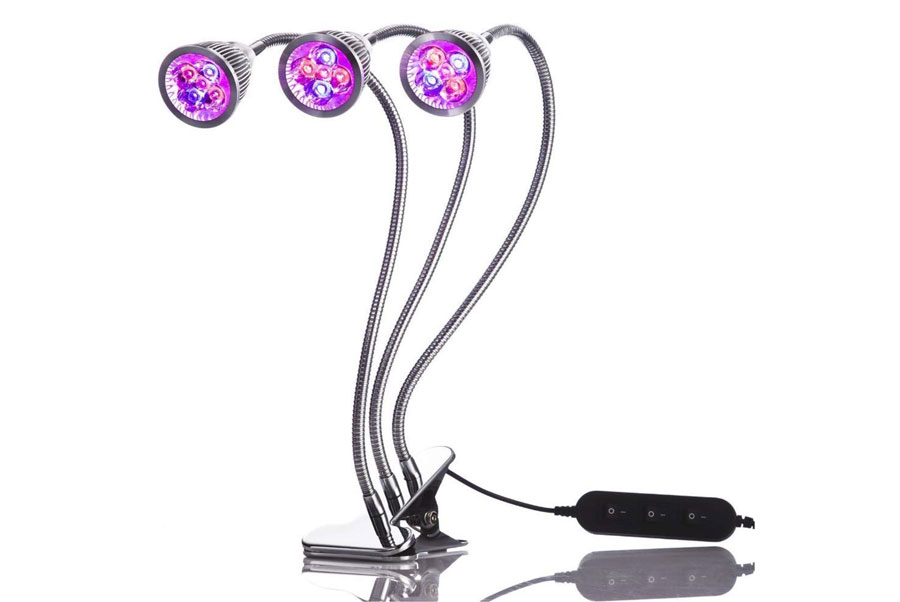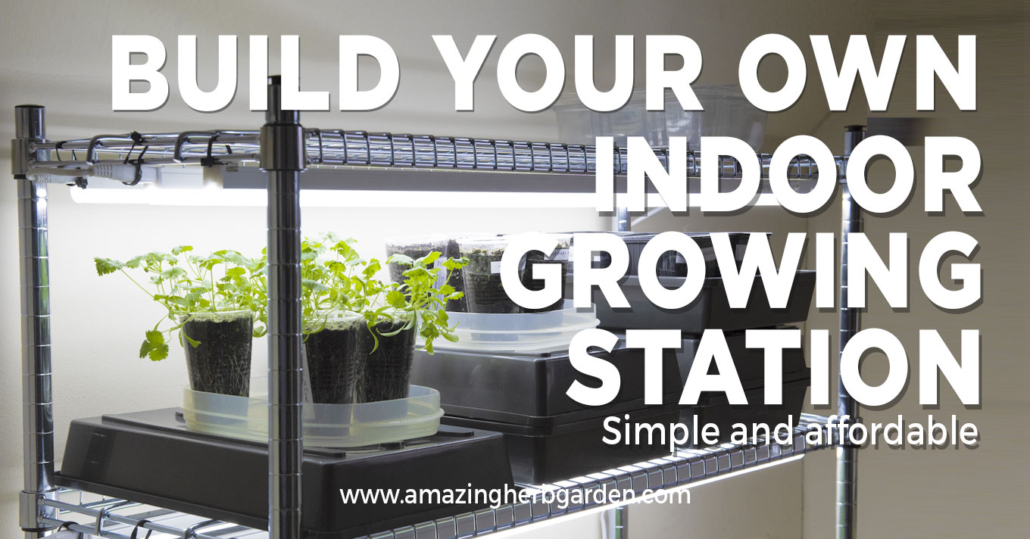Growing Herbs in Winter – Do grow lights work?
1. My experience using grow lights
In winter, they say the days are cold and dark. This is not different for our herbs. So I was wondering what the impact is for us herb gardeners.
Is it possible to obtain a sustainable growth in winter at all? And will herbs survive in the dark winter period?
I want to share some of my personal experiences with you, about growing herbs in winter using grow lights, a topic that I’m sure you’ll be interested in.
2. Growing herbs indoors requires a sufficient dose of light
Maybe the greatest challenge when growing herbs indoors is providing them with sufficient sunlight. We all know that light is of the essence when growing plants. But bright sunlight and winter don’t go that well together.
I am growing herbs indoors on the window sill, and I notice (it is half october when writing this) that growth of my basil plants are seriously slowing down or even coming to a halt the last couple of days. The available hours of high quality daylight is getting too low for a good plant growth. And a plant that does not receive enough light, will not grow, regardless of other conditions. It is that simple.
It’s quite hard to grow basil indoors particularly during winter months, but I will persevere because it is one of my favourite herbs.
We know that good and sustainable growth require long periods of intense direct light. Plenty of sources mention a minimum 6 to 8 hours depending on the variety. The more light you can provide the wealthier your herbs will grow.
A lot of herbs truly thrive when they are exposed to 12 to 16 hours of light each day, what is going to be difficult in many cases.
When we are growing herbs inside, the light intensity is always a lot lower than outside.
This means that the overall used rule of thumb of minimum 6 hours of light each day (for outdoor herbs) has to be adapted to “(a lot) more” for indoor herbs.
Even with some sunshine, we get in winter now and then, on the herbs on the window sill, the indoor herbs clearly aren’t getting enough light on a daily basis to continue growing.
Some herbs can take less light and still grow fairly well. I have noticed this for my mint plants for example. It seems that mint is one of the herbs that can even thrive in low light conditions. And also Parsley and Rosemary are coping fairly well with lower light levels.
But I want to have great growth and therefor I need to expose them to more light.
3. Growing herbs indoors with grow lights
That is why I am going to improve the lighting conditions for some of my herb plants indoors by putting them under a grow light. As a test, to experience the difference.
Adding a grow light isn’t always easy and practical to do, but I am going to try it anyway with my mint and basil.
Plants in general, so this is true for herbs too, use chlorophyll, which reflects a large part of the green light and absorbs mainly red and blue light. For grow lights, this means that we require a light source that emits for the most part the red and blue light. These two colors are crucial for keeping photosynthesis and other important functions in the plant going to get sustainable growth.
I ordered a growing light, and i am planning to leave lights between 10 to 14 hours each day to compensate for the weaker sun during the winter period. The lights will get turned on and off by an inexpensive timer.
I have tested this grow light for weeks :
4. My alternative and better solution to start herbs indoors
After a couple of weeks with these grow lights, I noticed weak and leggy growth.
The light intensity just isn’t what is required to really grow herbs indoors under a growlight, that is the reason why I build my own grow light station.
You can find all about that design on this page: How to build your own seed starting grow light station for your indoor herb garden.
Such a setup will help you and your herb starting for years.
Don’t hesitate to share your own experiences below in the comments.
We also post stories, pictures and links to things we love on our Facebook Page and we share more ideas, tips and tricks for growing herbs in our Facebook Group. We have a growing community of amazing herb gardeners there and we’d love you to be a part of it.






test comment